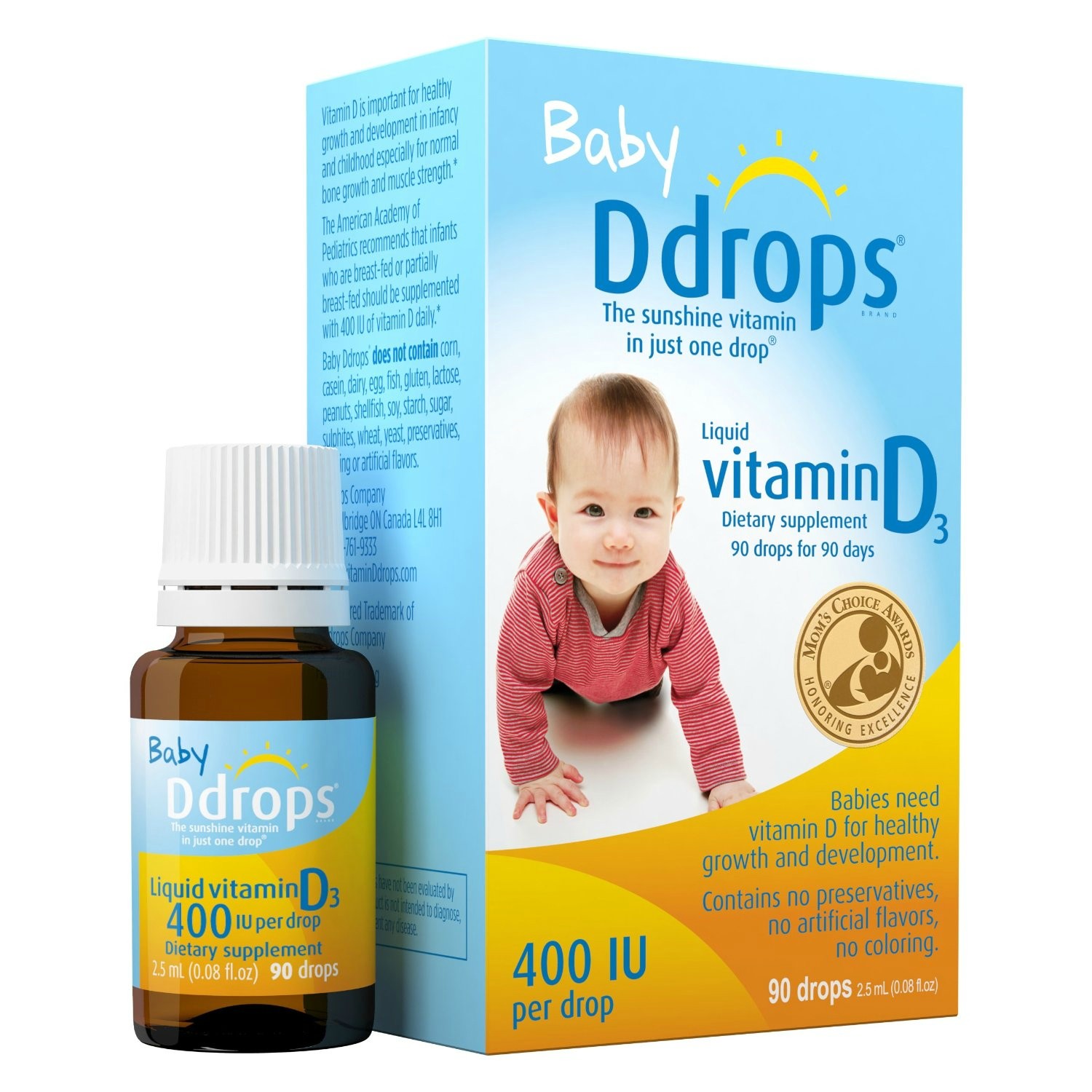Does My Baby Need Vitamin D?
May 16, 2017
Ensuring your baby has an adequate amount of Vitamin D is very important. Your baby will need Vitamin D to work alongside calcium and phosphorus to strengthen his or her bones. This vitamin is crucial for the healthy development of your child’s skeletal system. Vitamin D has also been found to help the immune system fight infection.
How to get Vitamin D
A unique attribute of Vitamin D is your body’s ability to create this vitamin when your skin is exposed to the sun. All other vitamins are dependent on the type of foods you eat or the supplements you take — Vitamin D is the only vitamin your body can make itself. While some foods do contain Vitamin D, your body needs exposure to sunlight to create enough of this important vitamin. However, when it comes to our little babies, exposure to sunlight can be a bit complicated.
Because of the high risk of sunburn and possible skin cancer development later in life, protective clothing and sunscreen is always recommended for children. While these protective tools are absolutely important, they block the ultraviolet rays that help the skin to produce Vitamin D. Additionally, particularly in cold climates or in very warm climates (like here in Arizona), children often do not spend enough time in the sun to adequately make enough Vitamin D. We also know that living in urban areas with tall buildings and increased air pollution can block the sun. Finally, people with darker pigmentation require more sun exposure to create enough Vitamin D.

Does my baby need Vitamin D?
If children do not get enough Vitamin D, they can develop a Vitamin D deficiency. This deficiency can lead to the development of a disease called rickets. Rickets, while rare, is a serious bone-softening disease that leads to poor growth, bowing of the legs, and sometimes muscle pain and weakness.
Avoiding skin sun damage while also avoiding a Vitamin D deficiency becomes a balancing act. Because this can be a challenge, the American Academy of Pediatrics recommends Vitamin D supplementation.
What are the guidelines for Vitamin D supplementation?
The AAP recommends that all infants and children should have a minimum intake of 400 IU (International Units) of vitamin D per day beginning soon after birth.
If your baby is breastfed (partially or exclusively), here’s what you need to know to ensure he gets enough Vitamin D:
- Breastmilk does not typically contain much Vitamin D (usually less than 50 IU in 32 ounces). This is not a flaw with breastmilk. This particular vitamin just doesn’t convert into breastmilk as well as other vitamins. Because of this, supplementing your breastfed baby with Vitamin D is recommended. There are many different supplements available on the market, so you can definitely ask your pediatric provider if they have any recommendations. One product I particularly like is (affiliate link) Baby D-Drops. Here’s why:

- 1 drop contains the entire 400 IU recommendation. Because it is a small volume, it is easier to give to babies. You can easily administer it on a small spoon or in a bottle of breastmilk
- It is tasteless, so no yucky flavor (I’ve personally verified this!)
- It’s chemical free
- Breastfeeding moms can increase the amount of Vitamin D they are taking so an adequate amount of Vitamin D transfers to the baby. A study in 2015 found that breastfeeding moms who took 6400 IU of Vitamin D daily transferred the same amount of Vitamin D to their babies as the babies who were supplemented with 400 IU daily. If you are interested in doing this, I’d highly recommend you read this great article on KellyMom for information.
If your baby is on formula, all formulas sold in the United States are already supplemented with Vitamin D. As long as your baby is drinking at least 32 ounces of formula daily, he will receive the recommended 400 IU of Vitamin D.
How long will my baby need Vitamin D supplements?
Few foods naturally contain Vitamin D (because, again, the best source of Vitamin D is sunlight). Vitamin D-rich foods include the flesh of fatty fish (such as salmon, tuna, and mackerel) and fish liver oils. You will also find a small amount of vitamin D in beef liver, cheese, and egg yolks.
Last time I checked, these foods aren’t typically among toddler’s favorites. Thankfully, almost all milk in the United States is fortified with Vitamin D (although I still recommend checking the nutrition facts to verify).
After 12 months, babies can begin drinking whole milk. If they drink 32 ounces a day, they will receive the recommended 400 IU of Vitamin D. However, if your child is still breastfeeding, or simply not a milk fan, there is no problem at all with continuing to supplement Vitamin D. And remember, it isn’t just babies who need Vitamin D, it is recommended for adults, too.
Author: Dani Stringer, MSN, CPNP, PMHS – founder of KidNurse and MomNurse Academy